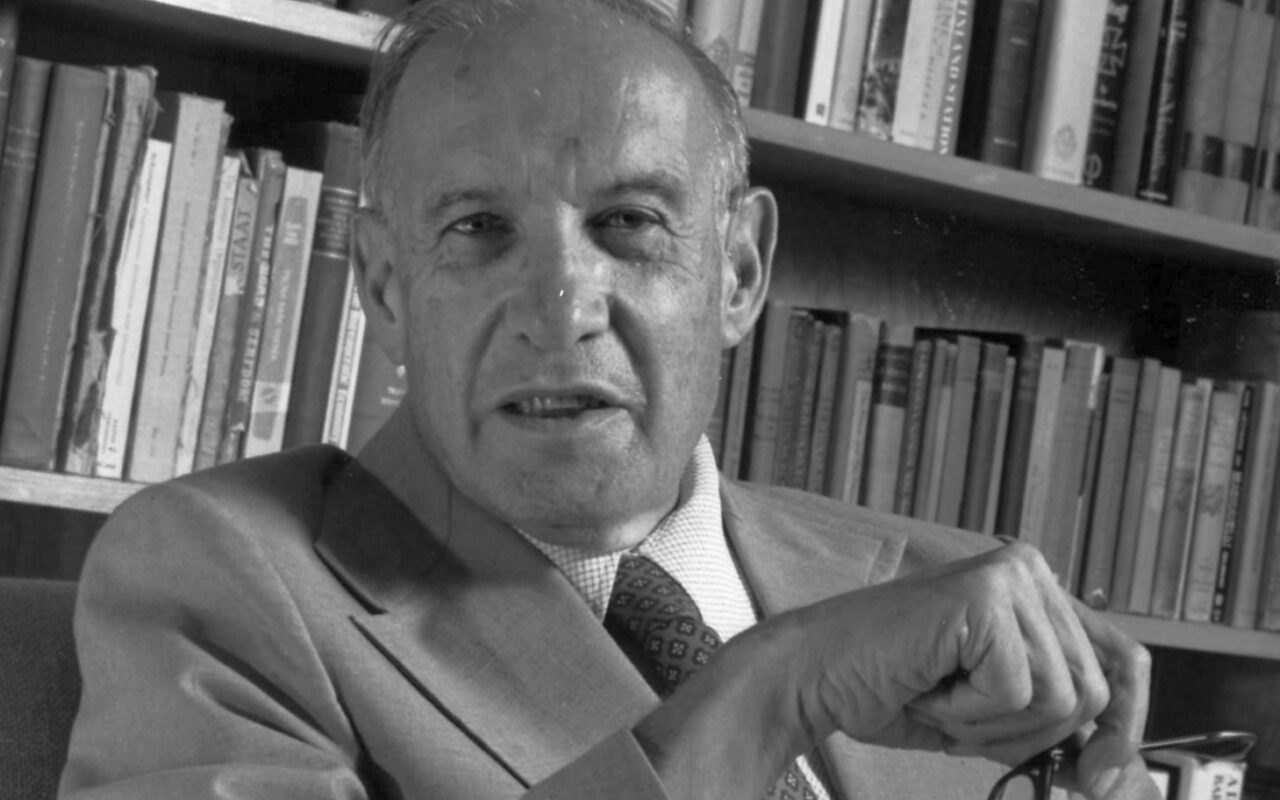
Drucker's theories about management are the key stone many of American corporations. Among other things, Drucker defined corporate social responsibility, organizational culture and the importance of continuous learning.
During his life, Peter Drucker published nearly forty books. As states the author of the article published on Business.com, Drucker did not invent managers. By most accounts, however, he did invent management. Before Drucker, the primary role of management was supervision. Today, thanks to his theories, it is the creation of strategies.
"Drucker placed great emphasis on the future. He realized that even if you are successful, you can easily fail if you do not focus on your future", says one of his students, the writer Bruce Rosenstein. In Drucker's words, "Management is doing things right; leadership is doing the right things."
Who was Peter Drucker
Drucker was born in 1909 in Vienna when the city was the capital of the Habsburg monarchy. At the beginning of the thirties, he graduated in Germany where he witnessed the rise of Nazism and became its staunch opponent. Therefore, he fled to Great Britain in 1933 and later, in 1937, to the United States. Drucker worked as a business reporter and investment analyst. In 1939, he published his first book "The End of Economic Man: The Origins of Totalitarianism", in which he describes the rise of fascism.
Drucker believed that the only way to prevent the comeback of fascism was to create a "functioning society” created of strong institutions, including companies and corporations, which had to be virtuous in order to be profitable. He was convinced that well-practised management is a bulwark against evil.
In his second book entitled The Future of Industrial Man, Drucker plays with the idea that corporations are both social and economic entities. He published the book in 1943, and it caught the attention of the company General Motors which was, back then, the symbol of American capitalism. The company invited Drucker to audit its internal processes. Based on the result of his study, Drucker published his second book "Concept of the Corporation", in which he described fundamental management theories.
Key stones of Drucker's theories
Drucker’s management theory embodies many modern topics, such as:
- Decentralization
Drucker was a consistent supporter of decentralization and democratization of management in the workplace. He wanted all employees to feel valued and motivated because their opinions matter. The tasks entrusted to the employees should inspire them and awaken their sense of responsibility. Supervisors and their subordinates should cooperate to fulfil the tasks assigned.
- Knowledge work
Traditionally, educated employees were white-collar employees, such as engineers or analysts, whose jobs required handling or using information. Drucker foresaw the knowledge-based economy years before the rise of computing and the internet. Therefore, he emphasized the role of employees who can address emerging problems and think creatively. He supported a culture of employees who do not only work but also produce ideas and insights.
- Workforce development
Continuous learning and education are the cornerstones of Drucker's philosophy. Managers and employees should strive to continually improve and benefit from external development through their participation in industry conferences and professional trade associations.
- CSR or corporate social responsibility
Drucker did not look at businesses as separate entities, but as parts of a larger social system. He believed that companies should consider themselves as part of the community and make decisions in that regard. Drucker even looked at profits through a social lens. Companies should strive for profit in order to create jobs and wealth for the entire society.
- Organizational culture
Whether positive or negative, helpful or harmful, every company has its own culture. And Drucker was among the first to suggest that managers should pay attention to the organizational culture. "The spirit of an organization is created from the top," he said in his book Management: Tasks, Responsibilities, Practices. "If an organization is great in spirit, it is because the spirit of its top people is great. If it decays, it does so because the top rots. No one should ever be appointed to a senior position unless top management is willing to have his or her character serve as a model for subordinates", wrote Drucker.
- Customer experience
According to Drucker, companies should have only one goal: to create customers. They should view business operations through that lens because the customer is the most important factor.
Management based on objectives
Management that is subject to corporate goals is one of the most important theories described by Drucker. It consists of five basic steps:
- Managers and employees set organizational goals together.
- Employees divide organizational goals into individual objectives.
- Managers and employees monitor compliance with individual and shared goals.
- Managers and employees evaluate performance according to measurable criteria.
- Employees are rewarded based on goals achieved.
To set goals, Drucker recommended SMART method of his colleague George T. Doran.
Are Drucker's theories still valid?
Although Drucker's ideas are many years old, most of them did not lose their freshness. Let’s take one of his most famous advice: “Look out the window and see what's visible but not yet seen."
No one should live only in the present. Drucker foretold the Molotov–Ribbentrop Pact or the collapse of the New York Stock Exchange. Those who want to meet the demands of future business should not ignore his theories. What is your opinion on the role of management? Are you inspired by any managers and which of their approaches caught your attention?
Let us know at [email protected]











